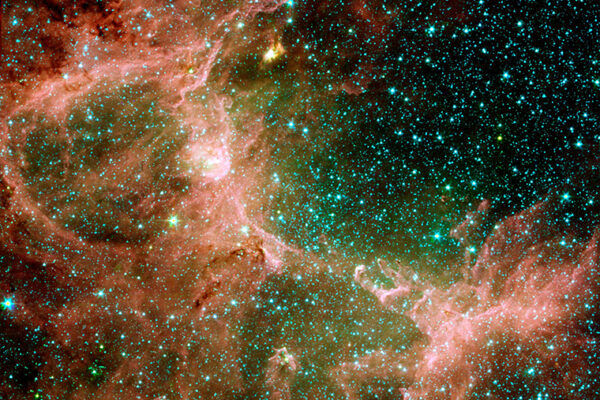Arts & Sciences junior named Newman Civic Fellow
Tej Azad, a junior in Arts & Sciences at Washington University in St. Louis, was among 162 students from across the country named a Newman Civic Fellow for 2012 by Campus Compact. The Newman Civic Fellows Awards recognize inspiring college student
leaders who have demonstrated an investment in finding solutions for challenges facing communities throughout the country and the world.
Seismic survey at the Mariana trench will follow water dragged down into the Earth’s mantle
Seismologists have just returned from a cruise in the Western Pacific to lay the instruments for a seismic survey that will follow the water chemically bound to or trapped in the down-diving Pacific Plate at the Mariana trench, the deep trench to which Avatar director James Cameron is poised to plunge.
New imaging technique moves from lab to clinic
Four applications of the new imaging technique photoacoustic tomography are moving into clinical trials. One is to visualize the sentinel lymph nodes that are important in breast cancer staging; a second to monitor early response to chemotherapy; a third to image melanomas; and the fourth to image the gastrointestinal tract. Biomedical engineer Lihong Wang believes photoacoustic tomography might also allow early diagnosis of cancer because the technique can reveal the hypermetabolism that is cancer’s hallmark.
Agrawal wins NSF CAREER award
Kunal Agrawal, PhD, assistant professor of computer
science & engineering in the School of Engineering & Applied
Science at Washington University in St. Louis, has won a prestigious
Faculty Early Career Development Award from the National
Science Foundation. The goal of Agrawal’s project, titled “Provably Good
Concurrency Platforms for Streaming Applications,” is to design
platforms that will allow programmers to easily write correct and
efficient high-throughput parallel programs.
McCarthy installed as new Spencer T. Olin professor
Mathematician John E. McCarthy, PhD, was installed March 2 as the Spencer T. Olin Professor in Arts & Sciences
in a ceremony in Holmes Lounge. Following the formal installation and the presentation
of the professorship medallion, McCarthy spoke on “Why Pure Mathematics
Matters.”
Finding solutions to Achilles’ heel of renewable energy: intermittency
William F. Pickard of Washington Unviersity in St. Louis introduces the February 2012 special issue of the Proceedings of the IEEE by quoting the Bible: “The wind bloweth where it listeth.” That, in so many words, describes is the major technological problem with renewable sources of energy, such as solar and wind power. The special issue, which Pickard co-edited with Derek Abbott of the University of Adelaide, discusses several solutions to intermittency, as it is called, first among them massive energy storage.
WUSTL anthropologists’ work prompts Republic of Congo to enlarge national park
Research by WUSTL anthropologist Crickette Sanz, PhD, and colleague David Morgan, PhD, has spurred the Republic of Congo to enlarge its Nouabalé-Ndoki National Park boundaries to include the Goualougo Triangle. The Goualougo Triangle is a remote, pristine forest that is home to at least 14 communities of “naïve” chimpanzees with little exposure to humans.
Scientists learn how insects ‘remodel’ their bodies between life stages
How is it that an insect can remake
itself so completely that it appears to be a different creature
altogether, not just once, but several times in its lifetime? Working with fruit flies, a team led by Ian and Dianne Duncan of Washington University in St. Louis found that genes whose expression is induced by pulses of steroid hormone are key to these transformations. A similar mechanism may underlie puberty — the human analog of metamorphosis.
New model provides different take on planetary accretion
The prevailing model for planetary accretion assumes that the Solar System’s planets formed in an extremely hot, two-dimensional disk of gas and dust, post-dating the Sun. In the March issue of Planetary and Space Science, two scientists at Washington University in St. Louis propose a radically different model, in which collapse takes place in a cold, three-dimensional dust cloud.
Study extends the ‘ecology of fear’ to fear of parasites
Work at Washington University in St. Louis, just
published in EcoHealth, shows that the ecology of fear, like other
concepts from predator-prey theory, also extends to parasites. Raccoons and squirrels would give up food, the study demonstrated, if
the area was infested with larval ticks. At some level, they are
weighing the value of the abandoned food against the risk of being
parasitized.
Older Stories

